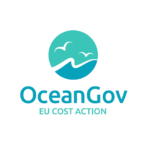 The Brazilian government calls its ocean the “Blue Amazon”, an immense Exclusive Economic Zone (EEZ) that is over 4 million km2 and encompasses nearly a third of the total marine and terrestrial area under national jurisdiction.
The Brazilian government calls its ocean the “Blue Amazon”, an immense Exclusive Economic Zone (EEZ) that is over 4 million km2 and encompasses nearly a third of the total marine and terrestrial area under national jurisdiction.
The country has just announced the designation of the two largest Marine Protected Areas (MPAs) in the South Atlantic around remote oceanic archipelagos that are unique in their geological origin, with large endemism and a rich marine and insular biodiversity. But some critics argue their design is suboptimal. “Designation processes of marine protected areas in Brazil have traditionally been chaotic, with limited uptake of ocean users ideas and, most often, advancing only when political opportunities suddenly arise like what we are seen with these announcements just prior our presidential elections race. This is not the way to go if we want to foster a more rational planning strategy that is socially and ecologically sensitive and coherent”, says Henrique Callori Kefalás, executive coordinator of Linha D’Água Institute, a Brazilian-based NGO that finances marine conservation initiatives throughout the country.
A recent study by a diverse group of scientists and policy-makers from Brazil, Germany, Sweden and New Zealand explores how area-based solutions can be implemented in more strategic ways, and how Brazil could truly become a champion of ocean sustainability to inspire other nations. The newly published research paper “Healing Brazil’s Blue Amazon: The Role of Knowledge Networks in Nurturing Cross-Scale Transformations at the Frontlines of Ocean Sustainability” synthesizes many years of engagement in collaborative studies on social networks to tackle marine degradation through knowledge-exchange and action, to design area-based solutions to an acidifying ocean, increased pollution, fisheries depletion, biodiversity loss, and a complex array of other inter-related issues affecting ocean health.
“What we argue in our paper is for more collaborative research agendas and strategic actions to channel the learning from past experience in MPA designations, in support of future transformations in how we go by implementing public policies, so Brazil can finally set sail towards a more sustainable ocean future”, says Leandra Gonçalves an associate researcher from the Center for Environmental Research and Studies at University of Campinas and study co-author. The study has thoroughly diagnosed the dramas faced by the country in the quest for ocean sustainability, which still lacks a coherent national-level vision and cross-sectoral plan. Its lead author, Leopoldo Cavaleri Gerhardinger, a post-doc (FAPESP No2016/26158-8) based in the Oceanographic Institute of São Paulo state, said that “Every societal sector with an interest in the sea has historically developed its own agenda and policies to extract ocean resources, but these plans hardly ever interrelate to yield an efficient and fair economy.”
The study does not drown in this troubling sea but outlines some critical opportunities that, if collaboratively supported by governments and societal actors in innovative partnerships, the tide can be changed for the better. This entails linking- and scaling-up solutions for creating and implementing a socially and ecologically coherent marine protected area network approach as the core of a nation-wide ecosystem-based marine spatial planning process that covers Brazil’s whole EEZ. “This approach integrates societal efforts towards the implementation of Aichi Target 11 and Sustainable Development Goal No 14.5, which are essentially for area-based solutions for ocean governance”, says Dr. Daniele Vila-Nova from the Ombudsperson of the Sea network. This organization is taking a lead role of both Actions No 14 and No 16 of the Federal Action Plan for the Coastal Zone (2017-2019) which sets a social control and monitoring platform for SDG No14 and articulates an entirely new legislative framework for the protection and use of Blue Amazon’s richness’.
Steering ocean governance regime transitions
The way forward, as the authors study authors propose, entails establishing transdisciplinary science at the helm of policy transformation processes. But, in a country currently dominated by political turmoil and institutional instability, how do we get there?
There is no single blueprint action, but the article identifies a series of strategic future interventions based on potentially transformative collaborative research-action. Steering that way, they say, could unite cross-sectoral institutional entrepreneurs, or ocean stewards and change-agents, in innovative work on various governmental and/or civil society fronts. “This is likely the first application of cutting-edge theories of transformations in social-ecological systems at such oceanic level”, says Ruben Zondervan Executive Director of the Earth System Governance (Sweden), a global social science research project that has just launched a global Task Force on Oceans (www.earthsystemgovernance.net/oceans) to help connect science to decision-making in support of ocean sustainability transformations.
So, let’s briefly explore some of the study’s take-home messages.
The authors argue that even though space for integrated approaches seems limited at first glance, seeds of positive change can be found in on-going, regional and local projects which have one or more innovative facets, from project design to implementation features. This is the case with projects in Santa Catarina state, such as the Southern-Right Whale Environmental Protection Area (EPA), where social actors are testing a more participative and outcome-oriented management plan; and in Babitonga Bay where collaboration may well self-organize into a new marine protected area system, the first ever to be designated in Brazil with an operating management council and plan already in place. These potentials go further. Marion Glaser (Leibniz Centre for Tropical Marine Research – ZMT; University of Bremen and IMBeR) opines that “Brazilian experiences and strategies towards inclusive marine spatial planning hold important lessons for other regions of the earth. Connecting and co-analyzing sustainability transformations in other countries with large marine areas such as Indonesia, China or South Africa is also an important enrichment for Brazilian marine spatial planning and essential for the planetary transformation towards sustainability without which humanity holds little chance of our so extensively ocean-based long-term well-being”. Thus, the authors stresses how critical it is to connect transformative actions into coherent policy narratives for improving the capacity for governing at increasingly larger seascape levels.
An important feature of future transformative initiatives will be to set more ambitious social mobilization targets. The authors suggest that for interlinking and creating synergies between the existing ocean-related knowledge in dozens of organizations across Brazil, the creation of entirely novel organizations to “orchestrate” (coordinate and facilitate) knowledge-production agents has great potential. These would then link-up and streamline, create synergies and implement learning experiments such as the network’s self-diagnostics report led by the Ombudsperson of the Sea network in 2016 – a collaboration between over 40 Brazilian organizations to better understand their inner operations and how to connect with other organizations and policy processes more efficiently (http://ouvidoriadomar.wixsite.com/ouvidoria3).
The study argues that neither society-led nor government-led initiatives will be effective alone. Both are necessary and there is a need to create incentives for more polycentric public policies that explicitly share a normative rationale in support of transformations towards ecosystem- and area-based ocean governance regimes.
In recent years, oceans have been ranked a top-priority in global sustainability research, and Earth system analysis and policy communities. Human-nature interaction across the Ocean and coastal realms are central, for instance, in global projects and initiatives such as IMBeR (Integrated Marine Biosphere Research (http://www.imber.info/), Future Earth Coasts (https://www.futureearthcoasts.org/), in the creation of a global Ocean Knowledge-Action Network spearheaded by the Future Earth project (www.futureearth.org/future-earth-ocean), and the launching of the United Nations Decade of Ocean Science for Sustainable Development (2021-2030).
While the paper does not say it will be easy, it suggests a framework to understand ocean-focused sustainability transformation and sets a path for inter- and transdisciplinary teams to pursue gradual, incremental structural understanding of an emerging arena for marine spatial planning in Brazil. “If we are able to test some of the paper’s ideas through future collaborations, we might even help drive transformative change towards ocean and coastal sustainability”, argues Professor Bruce Glavovic (School of People, Environment and Planning, Massey University, New Zealand), a co-chair of the Future Earth Coasts Scientific Steering Committee (https://www.futureearthcoasts.org), and a co-author of the Blue Amazon paper.
The paper highlights the importance of action-oriented research and sends important messages to science sponsors and researchers and policy-makers at all career stages concerning the stormy waters that lie ahead for Brazilian ocean policy. “Our research draws on so many interactions in Brazil, the majority driven by early career researchers in close collaboration with highly concerned and well-informed scientists and practitioners with decades of experience in their persistent efforts to learn about how to drive maritime policy change in practice” says Dr. Philipp Gorris from Osnabrueck University (Germany). The engagement of early career researchers and professionals is, nowadays, something that most global sustainability research projects are after, in order to match the level of energy and freshness of thinking required to change the game on sustainability. For instance, it is worth referring to the creation of an Early Career Researchers Network of Networks (http://earlycareerresearchersnetwork.weebly.com) which is currently mobilizing the new generation of concerned scientists to voice the need for ever more fruitful journeys in terms of transformations in reality, not just on papers. An early career researcher himself, the working experience of Fabiano Grecco de Carvalho in leading the paper’s Babitonga Ativa study case echoes this call: “Our project has consistently floated at the interface between scientific and policy circles and deliberately promoted transgenerational knowledge exchange to help us get mutually inspired in our aspirations for transformations”, says the biologist and Master of Science.
Finally, the research reports types of policy incentives we should support in efforts to operationalize sustainability in research and university outreach endeavors. “We are conscious of the muddled arena we are stepping in, but also thrilled by the transformative actions that are already evolving at multiple fronts”, says Dannieli Firme Herbst, a PhD candidate from University of Santa Catarina. Two highlights here are: the society-led co-design of the National Partnership for Ocean Conservation (http://bit.ly/PNCOceanos) focusing on Sustainable Development Goal No 14.5 (area-based solutions) and; the preparations of a White Paper on Aichi 11 Target of the Convention on Biological Diversity, led by the Brazilian Ministry of Environment in collaboration with UN Environmental Program (UNEP). There is potential for these complementary processes, that are going to be launched in 2018, to create synergies with other innovative steps the country is taking to kick-off its national marine spatial planning process, as is described in the paper.
Further information & contacts
The Healing Brazil’s Blue Amazon paper is open access and can be freely accessed here.
A Portuguese translation of the article is available here, and a policy brief here.[LCG1]
Do you have a critique, a question, a suggestion, or are you willing to get involved in subsequent transformative research on oceans? Please contact painelmar@gmail.com



Recent Comments